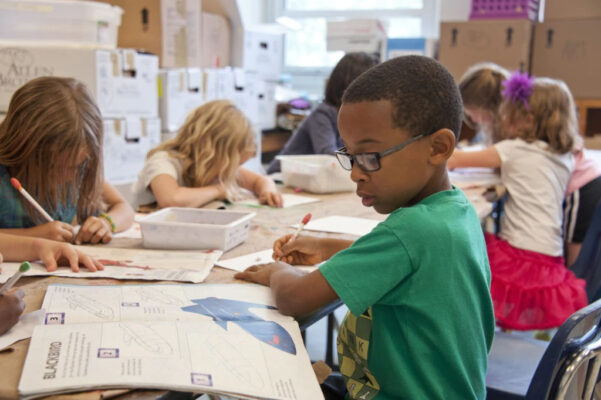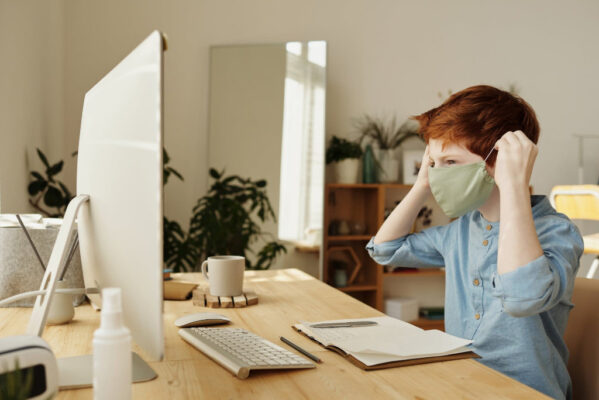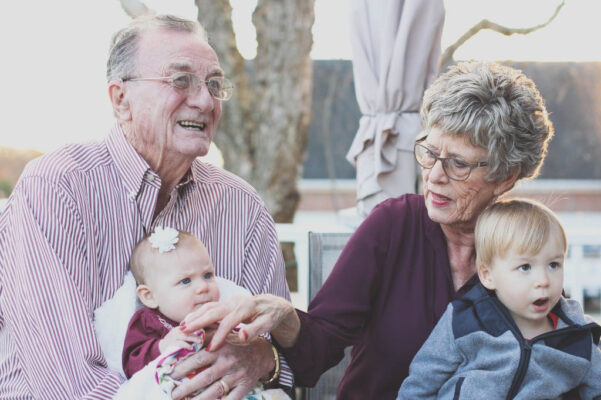I’ve had three doses of COVID-19 vaccine. With each jab, I was a little happier to improve my protection, and felt closer to having a more active social and working life.
I had little hesitation signing up, not least because billions of doses had been administered before my turn came. More than 9 billion doses had been given by the time I had a booster in December 2021.
But it’s never easy to make health decisions for others. It can be tempting to view the ‘do nothing’ option as an easy default, but in reality this is a choice just as much as opting to take action.

The time has now come to decide whether to sign our two children up for vaccination. And I know from listening to friends and scrolling through school WhatsApp groups that even people who jumped at the chance to have themselves jabbed are spending a little longer before making an appointment for their children.
Our two are in primary school, both aged under 12. The first COVID-19 vaccines for people aged 5 to 12 were approved in Europe in late November. The dose is just one third of that approved for people aged older than 12 years, but offers good protection against serious illness.
Since the COVID-19 vaccines for children were given the green light by the EMA, it has been on my mind a lot. I’ve taken every opportunity to ask paediatricians, immunologists and other health professionals what they would do if they had children in that age group.
I had the privilege of (virtually) attending the Excellence in Paediatrics Institute Conference in December and interviewing paediatricians from Germany, the UK and Romania on the topic. I asked health professionals and scientists that I know personally what they would/will do. This helped me settle the main questions I needed answered before deciding.
Is it necessary to vaccinate children?
To be honest, I was surprised at how positive and clear the responses were. From the sample of experts I asked, the conclusion was unanimously in favour of vaccinating. I was also conscious that the European Academy of Paediatrics has expressed support for paediatric COVID-19 vaccination and that the European Medicines Agency (EMA) had given its clear support.
My surprise stemmed from the apparently low level of severe illness among children infected with COVID-19. In the vast majority of cases, the disease is mild. Sometimes children are asymptomatic and are diagnosed only because they are close contacts of an infected adult.
However, with the Omicron variant of SARS-CoV-2 circulating widely, the risk of contracting the virus is higher than ever – and the risk of hospitalisation may turn out to be a little higher. While most cases will be very mild, a small number will result in serious illness. There is also the potential for longer-term consequences of COVID-19. This risk can be avoided or reduced through vaccination.
We apply a similar logic when vaccinating children against flu and even measles: most cases are mild, but let’s avoid the rare cases where outcomes can be very serious. In the case of my own children, we also elected in recent years to have them vaccinated against meningitis B (which was a relatively new vaccine at the time and was only available to us privately) even though this is a relatively rare (though invariably serious) illness.

Is it safe to vaccinate children?
Dr Barbara Rath, a paediatrician based in Berlin, summed this one up neatly. ‘In the broad scheme of things, children actually tolerate vaccines a lot better than adults do,’ she said. ‘This is actually the natural age where you learn to battle diseases; to train the immune system.’
I’m also comforted by the fact that the European Medicines Agency has (a) says the vaccines are very safe (b) monitors data on the millions of doses already administered to children and (c) recommends a dose which is one third of that offered to adolescents and adults.
Based on clinical trials in children, data on vaccinated children and the large number of vaccinated adolescents, it seems most will have no adverse effects. Those who do may have a sore arm or feel tired the day after their vaccination. This might be enough to turn some people away from vaccination if there were no risks associated with COVID-19. But there is no zero risk option available.
Is it safe to not vaccinate children?
When considering the downsides of vaccinating children, it is reasonable to weigh the risks associated with the disease. Again, most children infected with SARS-CoV-2 are fine: some have no symptoms while others have a mild and reasonably short sickness.
However, there are known cases of more serious illnesses in the acute phase of illness and over the longer term. The uncommon but serious condition that is of most concern to me is known as multisystem inflammatory syndrome in children (MIS-C).
It has also been reported that the body’s response to infection can leave people with antibodies that attack healthy tissue long after the illness appears to have passed. In short, these are things we’d rather avoid if possible, so doing nothing is not risk-free.

What are the benefits of vaccinating children?
Then there are the other reasons for vaccinating. One of the biggest is that vaccinating reduces the chances of missing school due to illness. Most kids missed out on significant chunks of the school year in 2020 and 2021 due to the pandemic. They have missed enough.
Along with this, children have missed socialising, exercising, playing, competing, learning and being active. Our two have missed swimming lessons, team sports, music classes and much more. We just want them to get on with it, uninterrupted by avoidable illness.
As a bonus, if reducing classroom outbreaks brings an end to mask-wearing for young children, it would be welcome. Masks are playing a role in reducing the spread of viruses in schools but this too comes with downsides in terms of communication.
And, of course, there is the added bonus of reducing the spread within our family and community. Children are, after all, the last major reservoir of unvaccinated individuals in society. Although we are mainly vaccinating our children for their own good, it is heartening to think rising rates of childhood vaccination will contribute to reducing the wider impact of the pandemic.

Conclusion: on balance, we have signed them up
Overall, the risks for children infected with COVID-19 are low. The risks associated with vaccines are low. For my own children, I am glad they have the opportunity to be vaccinated and view it as another step to a more normal, active childhood.




